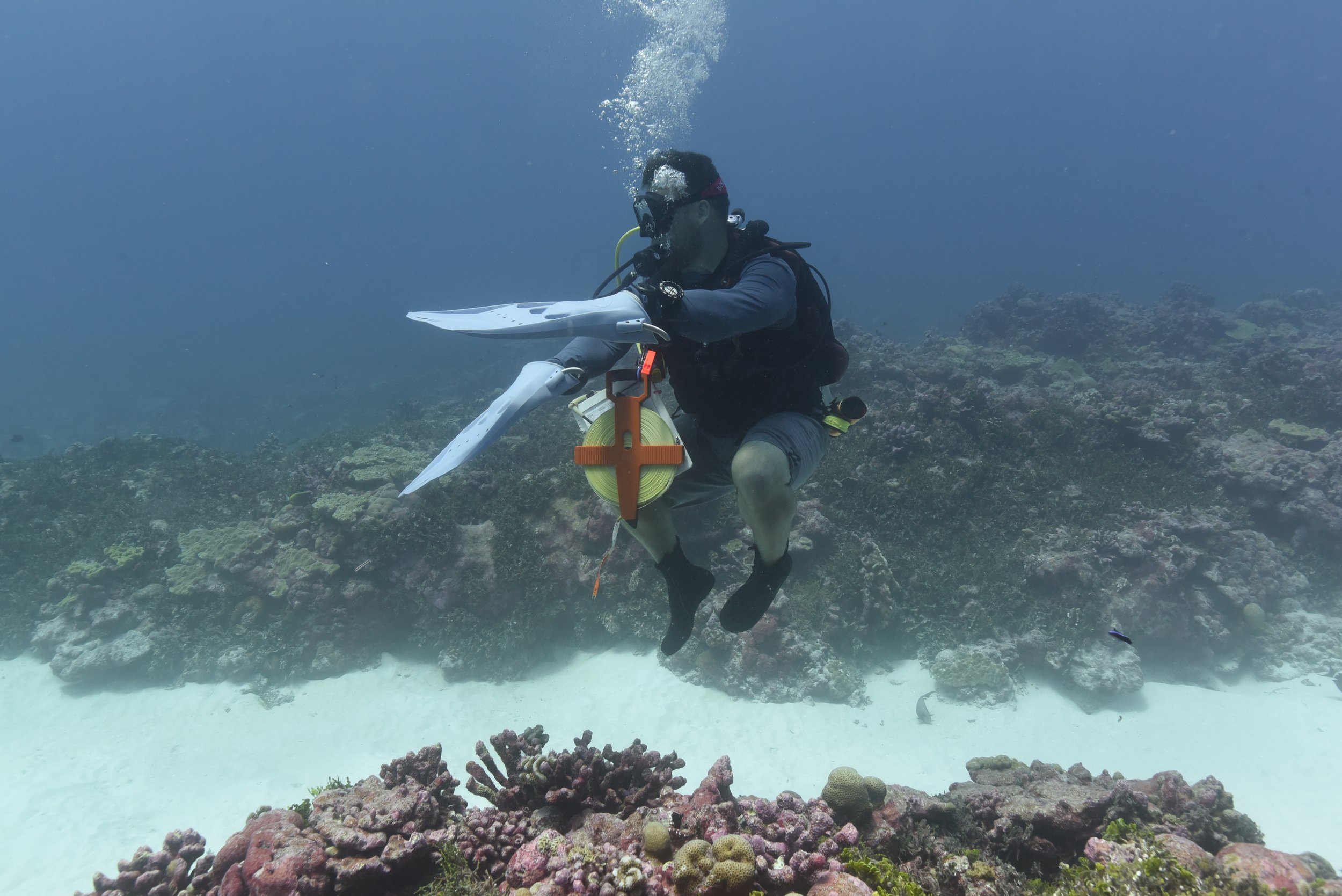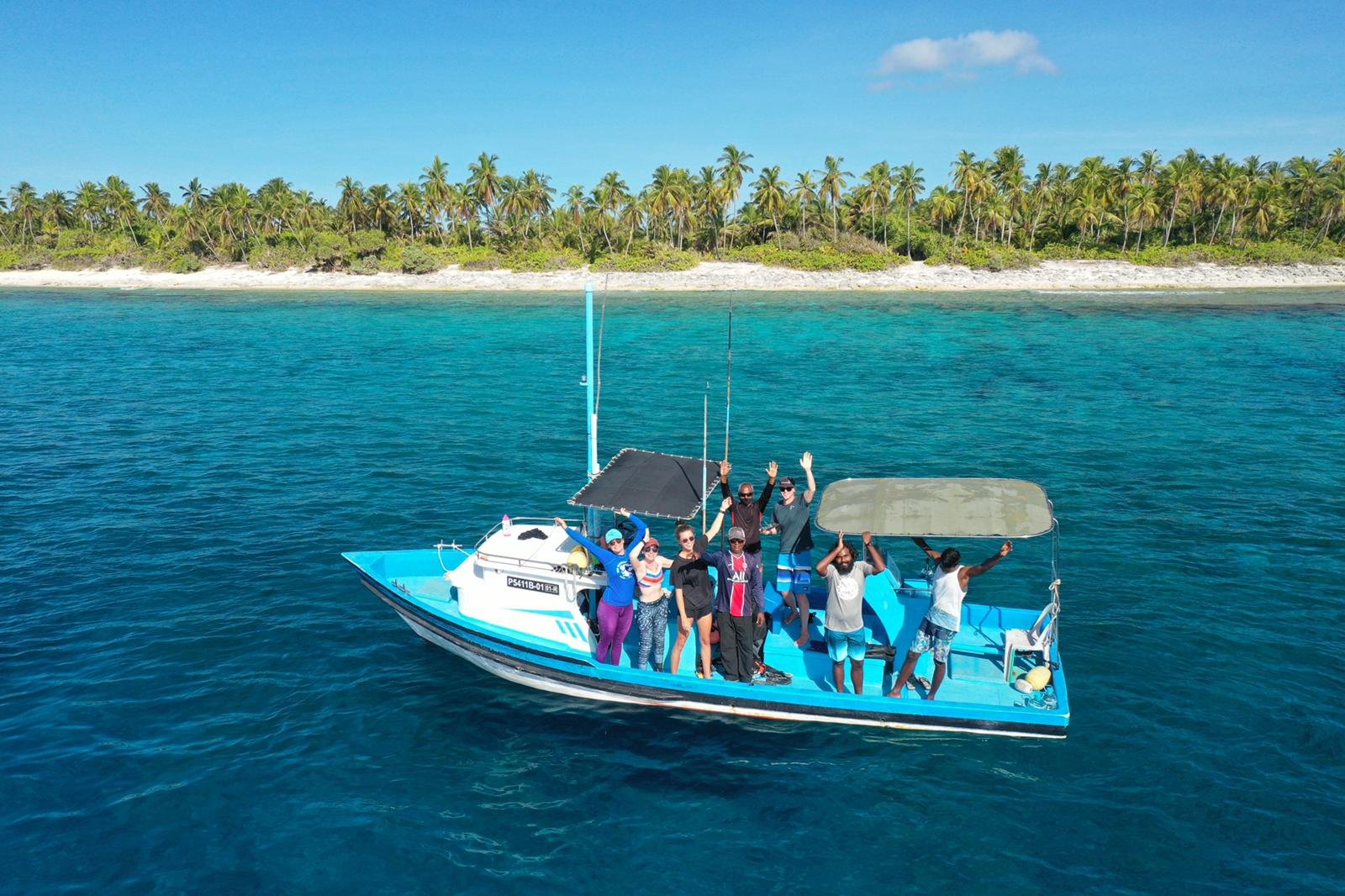The paperwork side of fieldwork
Here is an overview of the paperwork that you will need to complete for field work:
Complete a UVic Field Safety Plan at least 6 weeks in advance so that there is time for Julia/Kristina to review it before it gets submitted to OHS for review and approval.
In Development - more to come!
Scientific Diving
Before conducting any data collection via SCUBA diving there are several things you need to do first. All of the information is on UVic’s Scientific Diving page but the steps are below too.
You will need to first start a dialog with Victoria - UVic’s Scientific Diving Safety Officer. You can email her at Victoria@dynamicocean.ca. But beware that this is a part time job for her so she may take a while to respond. Due to this it is highly recommended to start your process early on!
-
Get a dive medical. It has to be done by an approved BC doctor (Dr. Leong is our favorite). This will take some time as several tests such as blood and hearing will need to be done. These tests are not covered by MSP.
Have current certifications for CPR and First Aid. If you do not have these, Victoria can help you get these. There are often several people who need to do their certification or their re-certs, so courses can be run by Victoria.
Have a minimum of 5 open water dives
possess a national recognized SCUBA certification
Once you have those then you can join the training program. This will include:
completion of online scientific dive theory course
swimming/diving skills evaluation at McKinnon pool on campus
dive accident management (DAM) training
oxygen administration course for divers
25 ocean dives with the DSO
NOTE: The program generally runs over 8 months from September to May with opportunities for some requirements to be completed in advance of the fall start.
Check out this webpage for more details.
-
You will need to submit to Victoria:
Current CPR, First Aid, and Emergency O2 certifications
Current dive medical
A completed dive plan
Signed Scientific Diver Registrations for each diver
Signed Diver Waiver for each diver
-
There are several things that will be needed from a reciprocity diver or someone converting to CAUS.
Letter of reciprocity from AAUS DSO sent to Victoria
Dive medical sent to Victoria. For reciprocity divers it just has to be within 2 years. For divers converting it has to be done by an approved BC doctor (Dr. Leong is our favorite). This will take some time as several tests such as blood and hearing will need to be done.
Complete the Standards and DCIEM components of the CAUS Theory course and test
Complete the Dive Accident Management (DAM) training
Obtain a Work Safe BC dive log book from UVic
Complete a check-out dive
-
You have to complete 12 scientific dives a year to remain an active scientific diver. To meet these requirements you can join CAUS training dives. You will also have to maintain current certifications for CPR, First Aid, and O2. Also do an annual check out dive with the DSO. Check this out for more info on the annual check out dive.
-
Must complete personal log books daily in pen
Daily dive plans with pre and post-briefing details and diver sign-off must be completed for each day of diving. Template
Daily dive log that must be submitted to the DSO with in one month of annual dive project completion. Example. For Kiritimati Island trips we have converted this form into an excel sheet which we fill out each night and submit at the end of the trip.
Have a copy of the CAUS standards aren the WorkSafeBC regulations part 24 on hand.
-
One of the requirement for scientific diving is to have a surface safety attendant that can provide support for the diving operations. In particular, monitoring top-side hazards and assisting with dive accidents. This person does not have to be a certified diver but they do need to be:
approved by the DSO
current certification in First Aid, CPR, and Emergency O2 for divers
Complete the Dive Accident Management (DAM) training
Complete the online training course via Brightspace (email ohs@uvic.ca to be enrolled).
Human Ethics
If your research involves humans in any sort of way (e.g., surveys) then you will need a human research ethics approval. This can take 4-6 weeks to get for first time applications so plan ahead. The UVic webpage has all the information you need.
As a lab we have not applied for many of these but Kaitlyn Z. applied for one in 2022 that you can use for guidance. PDF
All research involving animals (except see below) - laboratory or field-based - must be approved by the Animal Care Committee. This often takes a couple of months and details can be found here and their FAQs here.
Q: My project involves the simple observation of animals in their natural habitat. Do I still need to submit an Animal Use Protocol to the Animal Care Committee?
A: If the presence of researchers at the location of observation has any likelihood of causing habituation to humans or altering the animals’ behavior during their presence, then an Animal Use Protocol would be required (example: paddling kayaks closely towards nesting birds would likely cause the nesting birds to become agitated).
If the presence of researchers at the location of observation is unlikely to induce habituation to humans or alter the animals’ behavior during their presence, then an Animal Use Protocol is not required (example: enumerating bird species that land on a beach normally occupied/used recreationally by humans)."









